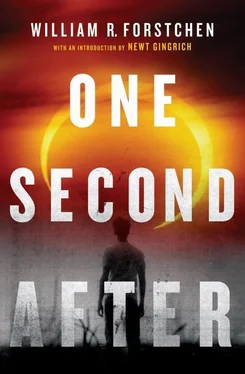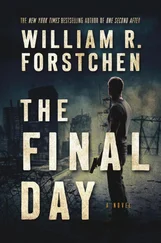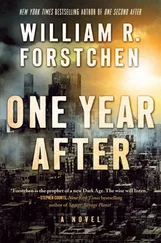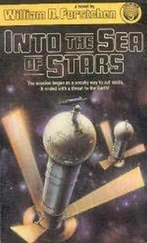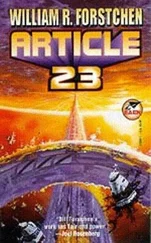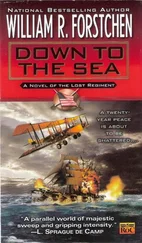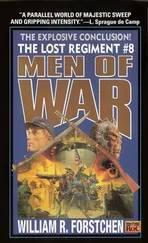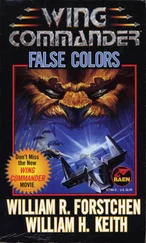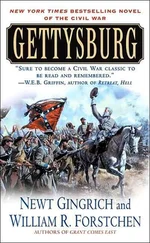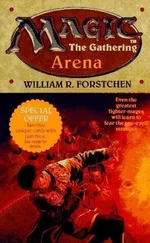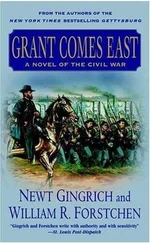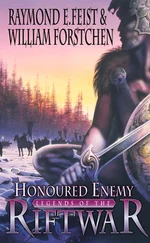Washington had warned of that before the battle, suggesting a false escape path for the routed who could then be hunted down later in a second killing zone farther down the mountain, but there was no other way, John realized. If they left an escape valve, a sound idea with a well-trained force but risky with the assets he now had, the surviving Posse just might break through and indeed escape, and then it could be months of a bitter guerilla war against the vengeful survivors.
It had turned into seven horrid hours of taking ground back, a step at a time, a bloody step at a time.
The medics were coming forward at the double. Wounded from earlier in the attack who had managed to hide and not get murdered, those wounded in the relentless push back, lay by the hundreds along the road. From up on the south side the fire was rolling eastward and screams could be heard, those trapped up there and now burning to death. It made John think of the Battle of the Wilderness in 1864. One could read of that fight in the history books and feel remote somehow. Not now. Even if they were all Posse burning up there, it was horrific.
And behind him Tom’s men now came, deployed out in open order, and every few feet one would stop, lower his pistol, and fire.
The Posse wounded were to be summarily executed, and that was a task John wanted the police and older men of the town to do, not his own kids. They were hardened now, but he never wanted them that hard.
John slowly walked up the sloping road towards the crest and at last found him, a knot of students gathered round his body, heads lowered, some weeping.
Washington Parker was dead, killed in the opening minutes of the fight. The way he lay here seemed almost Christ-like, arms spread wide, heartbreakingly a young female student, dead as well, nestled under his arm as if in his final seconds he was trying to protect or comfort her, or maybe it had been the other way around.
Washington had insisted upon being in the front line, arguing with John that the kids needed him there especially to be led in the difficult task of feigning withdrawal, and along with the rest of the first platoon Washington had not come back.
John had held a hope that perhaps, just perhaps, Washington had managed to hole up someplace but knew it was unlikely.
John drew closer.
The man died as he would have wanted, John realized, leading “his men,” from the front, and John felt guilt, having fought the battle from the rear line, as a commander.
Washington’s “soldiers” were slowly filing by, battle-shocked kids actually, faces strained, sweat soaked, more than a few bandaged, coming down now out of the flanking hills and up the interstate, gathering in, and all now filing past their sergeant.
As each passed they slowed, and John watched them, hearing their whispered farewells.
“Thank you, sir.”
“Be with God now, sir.”
“I’m sorry, sir.”
With frightful intensity it reminded John of the famous column written by Ernie Pyle back in World War II, about the death of a beloved officer and how his men reacted.
One of the girls knelt down, touched Washington’s face, and then walked on. Some were silent, some offered a prayer or thank-you; others swore out of pain and bitterness.
John fell in with them and walked up. All he could do was come to attention, salute, and then move on. The sentimental side of him was dead at this moment, still in shock. He’d cry for Washington later on, alone.
More shots from behind, the sound of the horn of a Volkswagen Bus honking as it sped off, weaving around the wreckage, hauling wounded back to the main hospital in town.
More vehicles backing up, the old farm trucks, the diesel truck now rigged to a flatbed so that several dozen could be loaded aboard at once.
“John?”
He saw Makala coming forward and without thought he grabbed hold of her tightly. She began to shudder with tears.
“Thank God. There was a rumor you were dead.” He shook his head.
Yes, his face was burned. The Posse actually had made up some primitive bazookas, fired from pipes welded to several trucks, and a round had detonated on the bridge, knocking him unconscious for a couple of minutes.
She broke from his embrace and stepped back, holding up her hand.
“Track my finger with your eyes,” she said, moving it back and forth, staring at him closely.
“John, you might have a concussion. And you got some second-degree burns.”
“The hell with that now. Take care of the others.”
She nodded, stepped back, and went over to one of the wounded, a girl, a volleyball player from the school. She was crying, curled up, clutching her stomach. John watched as Makala knelt down, brushed the girl’s forehead, spoke a few soothing words, and then with an indelible ink pen wrote “3” on the girl’s forehead. Makala leaned over, kissed the girl gently, and then got up and went to a boy lying by the girl’s side. The boy’s leg was crushed below the knee, and he or someone else had slapped a tourniquet on him. He was unconscious. Makala put a finger to his throat to check his pulse, wrote “1” on his forehead, and stood up.
“A one! Here now!” she shouted.
A stretcher team sprinted up, one of the boys looking down at the girl shot in the stomach and slowing. And John could see the agony in his face. The two had dated a year ago, in fact had been something of “the couple,” until she broke it off. At a small college, everyone knew about the lives of the others, sometimes not so good, sometimes rather nice.
“Over here! This one here! Move it!” Makala shouted.
The boy, tears streaming down his face, was pushed forward by the girl at the back of the stretcher. They loaded on the boy with the mangled leg, turned, and started to sprint back down the road. Makala was already up to the next wounded, pen in hand. She was now, as the ancients might have said, the chooser of the slain: 1 for priority treatment, 2 for delay till all Is were taken care of, 3… 3 simply meant they were going to die and effort was not to be expended on them for now.
None of the student soldiers going into the fight knew about this triage, though the students assigned as medics did, as did all who were now helping to clear the battlefield, but it did not take long for the receivers of this to figure it out.
A girl was lying in the ditch against the median barrier, multiple gunshot wounds having stitched her body. Makala barely paused to look at her, wrote a “3” on her forehead, and moved on. The girl looked at John, crying.
“What did she write? What did she write?”
John knelt down by her side. It was a wonder she was still alive, the gunshot wound to her upper thigh having shattered her femur. How the femoral artery was not torn was beyond him. She was also shot through the chest and stomach, blood frothing her lips. He didn’t recognize her. Most likely a freshman who had yet to take his class.
“She wrote ‘2,’ sweetheart,” he lied. “Others worse hurt than you. Help will be along shortly.”
She tried to smile, to nod, but was already beginning the gentle slide into the night. John leaned over and kissed her on the cheek.
“Go to sleep now, honey. You’ll be ok.”
She reached out and snatched his hand, her grip remarkably strong. “Daddy?” she whispered. “Daddy, help me.”
“Daddy’s here.”
She began to shake uncontrollably.
“Now I lay me down to sleep,” he whispered.
I pray the Lord my soul to keep …, she mouthed the words. The shuddering stopped…. She was dead.
John brushed the hair from her sweat-soaked forehead, kissed her again, then gently released her grip and turned away.
Distant shots echoed from the hills and more closely, from behind, as Tom’s men continued to kill the Posse wounded.
Читать дальше
